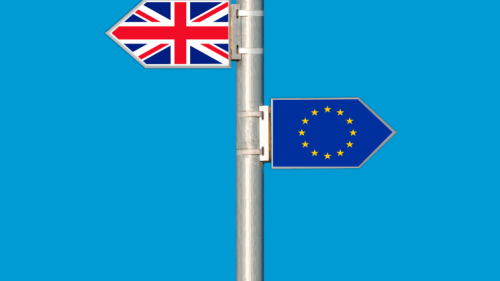The purpose of this article is not to analyze the situation around Iran and all the possible scenarios.We just would like to present some considerations in view of the dangerous developments around the Islamic Republic, as Washington and Tehran remain locked in the ongoing standoff with no end in sight.
Despite some recent positive trends and moves,which have reduced the risk of a possible military action against Iran, the situation around the Islamic Republic remains quite explosive. U.S. attempts to put together a new coalition of nations to counter what it sees as a renewed maritime threat from Iran, the deployment of warships in the Persian Gulf, the seizure of oil tankers and destruction of military drones have created a situation, when hostilities are more likely to betriggered by the so-called ‘war by accident’, rather than by a political decision of one of the major involved partis.
Given the large number of key players and stakeholders in this process, involving both public and non-public actors, it is not ruled out that one of the players may attempt to provoke a hostility that could be portrayedas ‘war by accident’.
In case of the worst possible scenario –if hostilities and war breakout – it is obvious that ground operation against Iran is practically impossible, first of all, because of geography–we mean mountain ranges along some of its border, deserts in the east,swamps in the south and Turkey in the east that would not let US troops use its land to invade Iran.
But it is also evident that the geography of the military operation theater would expand significantly across the region. Military operations may embracecountries that would be involved in war inadvertently. As a result, the number of nations involved in hostilities would increase dramatically and the hostilities would extend throughout the Middle East- from Syria to the UAE, from Iran to Saudi Arabia, and so on.
In the event of hostilities against Iran, it is more than likely that it would take Tehran from four to six months to developa nuclear weapon.Some experts are tendingto consider the situation around the Islamic Republic to be much more complicated than the Caribbean Crisis, saying the latter involved two partiesonly and it was much easier for them to seek a way out, while in the case of Iran, as already mentioned, the evident and non-evident key actors are many.
It is more than obvious that in the event of hostilities or war, it would be impossible to calculate all the scenarios, but one thing is clear: massive airstrikes against Iran would triggera large influx of refugees from that country. Most likely, Turkey would close its borders, and those flows would head north to the borders with Armenia and Azerbaijan.
This would pose a serious threat not only to Armenia and Azerbaijan but also to Russia. Some Russian military experts have already argued that Russia would have to increase and consolidate the number of its frontier troops on the Armenia-Iran border, take also control of Azerbaijan-Iran border, as well as the actual border between Nagorno-Karabakh and Iran.
In the event of such developments, it may be difficult for Azerbaijan to sit on different geopolitical chairs at the same time and official Baku would be more likely to allow Russia to take control of its border with Iran (including its exclave Nakhichevan) as the large flow of refugeeswould become a source of serious domestic political instability.
The hostilities against Iranwould produce no winners, neither military nor political. All would lose. But there is no doubt that Russia would get the biggest political dividends, and maybe China as well. Possible hostilities against Iran would greatly enhance Russia’s role and none other than Moscow could assume the part of a mediator. China might also show assistance to Moscow.
The Russia-Iran relations are already acquiring strategic allied qualities. As evidence,we can point out the recently signed agreement on expanded military cooperation between Iran and Russia. Iran is pursuing closer ties with the Russia-led Eurasian Economic Union (EEU). The sides are completing a set of procedures necessary for the entry into force of aninterim agreement establishing a free trade zone between Iran and the EEU, which is to begin operatingstaring October 27, 2019.
Given Turkey’s growing multilateral cooperation with Russia, it is safe to say that the Moscow-Ankara-Tehran triangle will become decisive, with Russia gaining significant influence in it. Thistrilateral cooperation may have a different meaning and impact, also in a variety of processes in a much larger region.
Potential military action against Iran and the Nagorno-Karabakh conflict
Opportunities and potential scenarios ofhow interests and influences may change in the Middle East are a subject of constant discussions in the context of Iran-related developments, while the South Caucasus, where there are big conflict-generating potential and serious factors threatening stability and security, and first of all, the Nagorno-Karabakh (NK)conflict, as a rule, is being ignored. The negotiation process under the auspices of the OSCE Minsk Group co-chairing countries – Russia, the United States and France –is now in a stalemate.
Given the bellicose, belligerent rhetoric, resumed after a pause by Azerbaijani president and some other top officials, as well as Armenian prime minister’s contradicting speeches along with his defense minister’s statements containing aggressive elements, it is not ruled out that in the event of a possible large military action against Iran,Azerbaijan may try to resort to hostilities in Nagorno-Karabakh presenting it as a justified response to contradicting and incomprehensive statements, even to the OSCE Minks Group co-chairs, coming from the current Armenian authorities, and their short-sighted policy.
It should be noted that significant changes have taken place in the NKconflict negotiation process under the auspices of the OSCE Minsk Group co-chairing countries. After the so-called ‘four-day war’ in 2016 April, thefocus in the discussions was placed exclusively on the ways to ease tensions and on the OSCE Minsk Group co-chairs proposals to maintain the ceasefire agreement, signed back on May 12, 1994.
They include the deployment of a larger OSCE monitoring group on the contact line, the installation of special electronic equipment to record ceasefire violations along the line of contact, and the creation of mechanisms for an international investigation of ceasefire breaches by the sides of the NKconflict. Azerbaijan has so far refused to accept these proposals of the OSCE Minsk Group co-chairing countries, ignoring the mediators’ calls.
After the change of power in Armenia in April-May 2018,these issues were pushed out from the negotiation agenda, and are no longer mentioned in the OSCE Minsk Group co-chairs’ official statements. By the way, starting in 2013 and until 2016, these proposals werepresented to the conflicting parties as a demand.
Instead, the focus in the discussions in the negotiation process shifted to the conflict settlement issues, which obviouslyis not promising, and that is why, as mentioned above, the negotiations have appeared in an uncertain, almost deadlocked situation.
Such a change in the agenda seems to satisfy Azerbaijan, and the current deadlock does not, to put it mildly, contribute to the maintenance of the ceasefire by the parties to the NKconflict, which, by the way, is their international obligation.
t should be noted that while earlier the mediators considered the conflict management, ceasefire and security maintenance to be their task, now after the famous ‘elevator’ verbal agreement reached between Pashinyan and Aliyev on September 28, 2018, in Dushanbe, to open a direct Armenian-Azerbaijani communication line,the ceasefire maintenance has shifted to the Pashinyan-Aliyev format.This change has been already stated in the OSCE Minsk Group co-chairs’ statements. These realities have significantly diminished the role of mediators in maintaining the ceasefire and restraining the rise of tensions.
Now it will be quite difficult, almost impossible in this situation to persuade Azerbaijan, or force it to return to the previous agenda, as the Azerbaijani authorities have got an opportunity to ignore the agenda that was not benefiting them.In case of an outbreak of hostilities in NK conflict, the active involvement of new political players, in the first place of Russiaand also the US, Turkey and Iran, would becomeinevitable.
Can OSCE Minsk Group co-chairing countries establish stability on the line of contact in the Nagorno-Karabakh conflict zone without the consent of parties of the conflict?
Azerbaijan has consistently opposed proposals to reduce the tension on the line of contact. The implementation of these measures can only be achieved with the consent of theparties of NKconflict. However, the OSCE Minsk Group co-chairing states have the opportunity to make the situation in the NKconflict zonemanageable and stable without the consentof the conflicting parties.
Given the fact that the OSCE Minsk Group co-chairing states – Russia, the United States and France – are permanent members of the UN Security Council, and are the most important geopolitical centers, all three technically are capable of establishing satellite control over the contact line, and as amatter of fact,they use this opportunity regularly to follow all the movements and changes on the line of contact in the NKconflict zone.
Consequently, these three mediating states can exercise political will and, without the consent of the parties to the conflict, come out with a joint official statementto say that they will exchange information regularly from satellite monitoring and will periodically discussand analyze all the changes in the military situation in the conflict zone and possible undesirable developments.
The exchange of satellite monitoring information, discussions and analyses among the OSCE Minsk Group co-chairing states could serve as a serious deterrent to offensive plans of the sides to the conflict. Such a form of cooperation will substantially reduce the risk of resumption of large-scale hostilities and will become a strong positive impetus for furthering the NKpeace process.
At present, there are threats to global security in the region, and potential hostilities against Iran may spur a new war in Nagorno-Karabakh, and on the contrary, the outbreak of hostilities in NKconflict zone may trigger an escalation of the tension around Iran.In this context, the task of de-escalating and reducing the risk of new large-scale hostilities in the NKconflict zone is becoming more relevant for the wide regionMiddle East-South Caucasus.
Dr. David Shahnazaryan,
Ambassador Extraordinary and Plenipotentiary, Ambassador of the President of Armenia on Special Missions and Special Representative of the President of Armenia 1992-1995, the Head of the National Security 1994-1995, former two-term deputy in the Armenian parliament from 1991-1995 and 1995-1999.



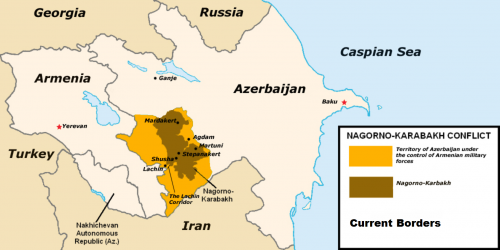

 del.icio.us
del.icio.us
 Digg
Digg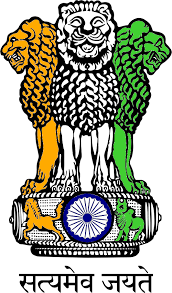
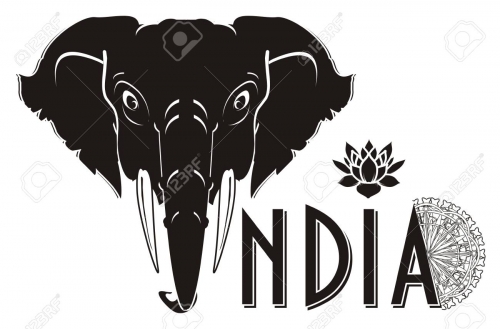
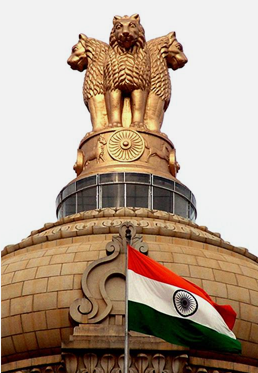 Finally, a word of caution: India has to be extremely careful about uncritically lapping up the “democracy promotion” discourse, which is often aimed at polarising Asia and the world, and denying many states the flexibility of pursuing more complex foreign policies and balance of power strategies (Singh 2018). In the 1950s, Jawaharlal Nehru went to the extent of instructing his diplomats to avoid phrases such as the “free world,” “iron curtain,” or any politically-charged binary that could let it appear that India was parroting Western Cold War rhetoric that potentially positioned it at a disadvantage vis-à-vis other major powers. Modi’s June 2018 speech at the Shangri- La Dialogue in Singapore echoed this approach (MEA 2018). Rejecting the idea that India has a singular identity that then must automatically place it in one coalition or bloc, the Prime Minister spoke of a multitude of groups and partners where the common link was not democracy or shared domestic political systems, but converging material interests or shared ideas and norms of the world order or overlapping concepts of security.
Finally, a word of caution: India has to be extremely careful about uncritically lapping up the “democracy promotion” discourse, which is often aimed at polarising Asia and the world, and denying many states the flexibility of pursuing more complex foreign policies and balance of power strategies (Singh 2018). In the 1950s, Jawaharlal Nehru went to the extent of instructing his diplomats to avoid phrases such as the “free world,” “iron curtain,” or any politically-charged binary that could let it appear that India was parroting Western Cold War rhetoric that potentially positioned it at a disadvantage vis-à-vis other major powers. Modi’s June 2018 speech at the Shangri- La Dialogue in Singapore echoed this approach (MEA 2018). Rejecting the idea that India has a singular identity that then must automatically place it in one coalition or bloc, the Prime Minister spoke of a multitude of groups and partners where the common link was not democracy or shared domestic political systems, but converging material interests or shared ideas and norms of the world order or overlapping concepts of security.